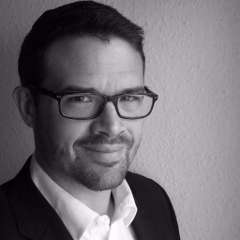May at the Deutsche Oper Berlin is Verdi month, or at least this year includes the house’s ‘Verdi Tage’. Six of the company’s stagings of the composer’s works have been scheduled, filling up a total of 16 evenings. Of these, the return of Marco Arturo Marelli’s 2011 Don Carlo was always going to provide one of the biggest draws – less for the production, perhaps, than for a cast headed by arguably the finest Verdi soprano of the day, Anja Harteros. Another interesting factor for me was to hear the work conducted by the Deutsche Oper’s music director, Donald Runnicles, whose Wagnerian credentials were likely stand him in good stead for Verdi’s grandest of scores – albeit delivered here in its least grand of versions.
The website still includes thanks for directors for adjusting their productions to the Deutsche Oper’s compromised technical facilities – a flood late last year knocked out much of its lighting – and one sensed that certain effects had ended up flattened out in Marelli’s staging. The years have not been kind, either, to several of the production’s details: various directorial touches seem now to exist without the surrounding detail or subtlety one imagines helped give them context when new.
It's a fluent production, though, in which scenes are elided into one another, with characters’ entries overlapping fluently; the set consists primarily of several large blocks – cruciform in shape, I think – that were wheeled around into various configurations. Costumes felt vaguely of the period, until a bizarre and underwhelming auto-da-fé, in which we seemed suddenly to be in the mid-20th century. A bit of book burning and church censorship were thrown in for good measure, and the Voice from Heaven (the outstanding Siobhan Stagg) stepped out of the crowd as a young mother cradling a baby to deliver her words of hope.
It’s a respectable rather than a spectacular show, and one that offers only limited sense of the sorrow and grandeur that are at the heart of the work. What it did offer, though, was a decent backdrop for an interesting cast to show what they could do – even if there didn’t seem to have been much time to bring the principal’s different acting styles into alignment. Harteros, however, brought her usual poise to her presentation of Elisabetta, dramatically speaking, but was not on her very best vocal form it seemed for much of the evening, only really fully hitting her stride in the final act. Despite a slight lack of focus at first (and a bang from backstage) she offered a gloriously noble and moving account of “Tu che le vanità”, and sang exquisitely in her final duet.
Her Carlo was Yosep Kang, who similarly improved as the evening went on, finding focus in a voice that seems to have and gained richness and depth since I last heard him. He’s a stylish, satisfying singer, and also stayed the course admirably. It was Étienne Dupuis' Posa, however, who took the prize for vocal consistency, rolling out rich, generous phrases in a pleasing, handsome baritone. Ildebrando d’Arcangelo brought dramatic interest in presenting a virile, handsome Philip II, but there’s no escaping the fact that his voice simply doesn’t have the dark depths that the role requires; he was given a run for his money by Matthew Rose’s imposing Grand Inquisitor. Elena Zhidkova’s Eboli struck me as impressively forthright but unyielding, both vocally and in acting that fell back a little too often on exaggerated gesticulation.
There were some fine moments in Runnicles’ conducting, and he led a final act of great lyrical beauty. But too often he allowed the tension to sag, letting the dramatic fire subside and lose momentum – such was the case in his handling of Posa’s death scene. The playing of the Deutsche Oper Orchestra also occasionally lacked bite and definition, too, while much of the choral singing was disappointingly underpowered.


